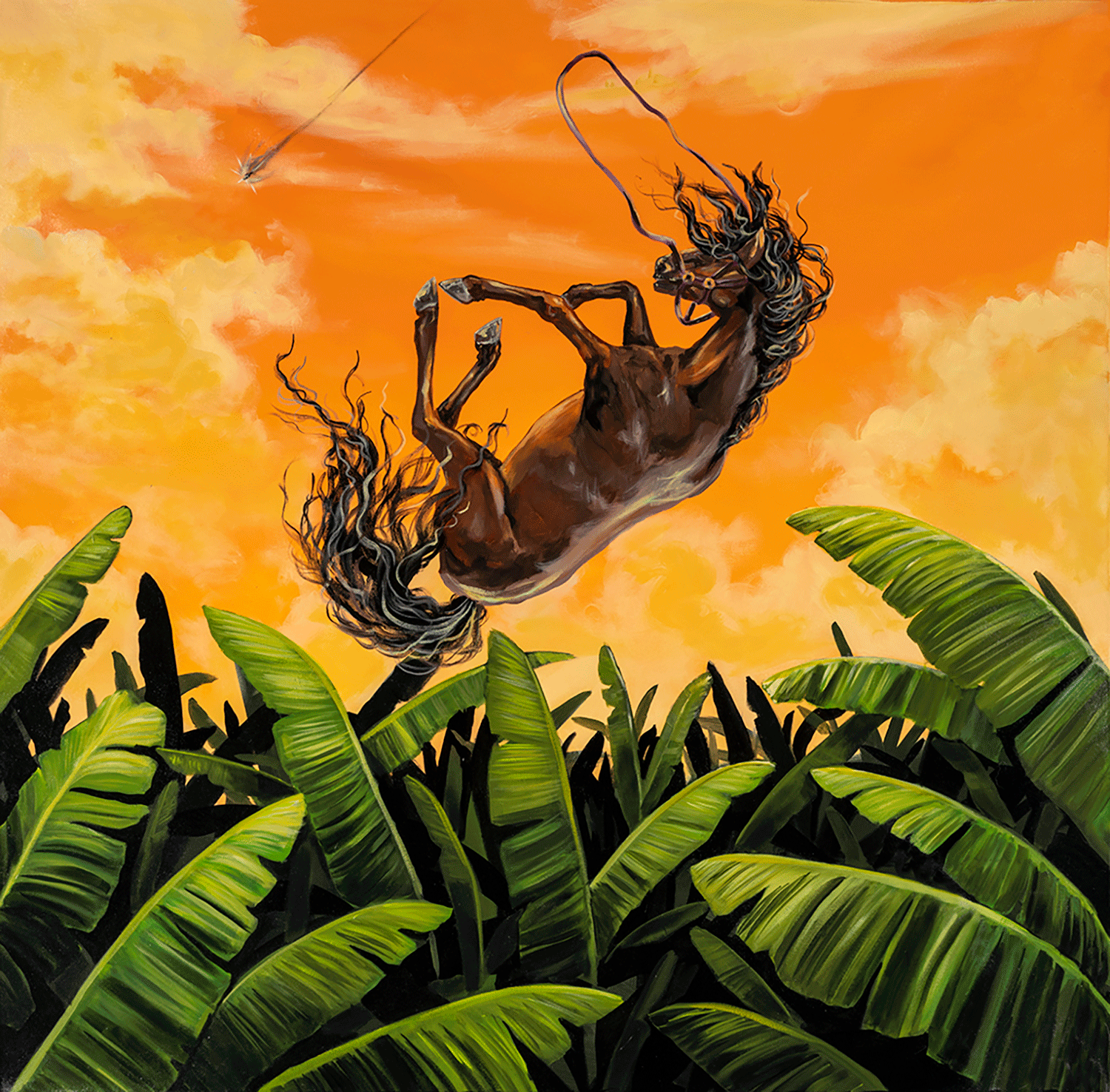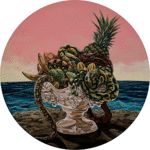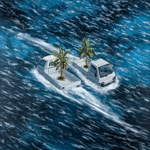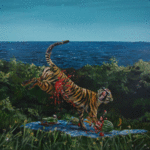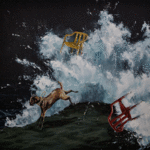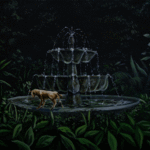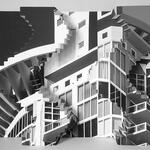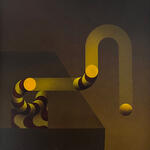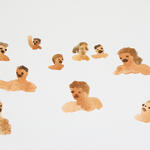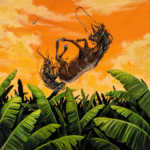Franz Caba
Bio
Franz Caba (1991, Santo Domingo) is a Dominican architect and self-taught artist. He proposes the idea of a Caribbean duality, the existence of a tangible and material Caribbean in which he lives in daily and an imaginary Caribbean that arises from the fantasies and desires of the foreign eye. His work focuses on the colonial processes of extraction and exploitation in the making of an ideal, a consumable and marketable paradise that influences the perception of those who inhabit it and of those who visit this insular space. Developing the landscape from his imagination, along with image-sourcing from the Internet, Caba engages in the reconstruction of paradisiacal postcards and spatial narratives. Using satire and absurdity to question the fantasies about the identity of the Dominican Republic and the Caribbean, Caba intervenes in these reimagined territories with objects and animals that, despite not being endemic to the Caribbean context, have positioned themselves as symbols of our identity and ways of life.
In 2020, Franz Caba was part of the 28th Eduardo León Jimenes Annual Art Contest in Santiago de los Caballeros, Dom. Rep. His solo show “Estoy aquí pero no soy yo” was presented in the Peña Defilló Museum in July of 2022 in Santo Domingo, Dom. Rep. He took part in the Caribbean Linked V residency in Oranjestad, Aruba in 2018 and in 2023 was invited to participate in the artistic residency that was part of the International Contemporary Art Biennial of Martinica, in Fort-de-France, Martinica.
Statement
My artistic practice is an exercise in which I meditate and question the absurd inside the narratives and fantasies of the Caribbean paradise through drawing, painting and installation.
Through the representation of the landscape, I materialize my findings about the relationship between space, objects and identity, pierced by the memories and fictions of my insular condition, appealing to the transgression of symbols like an act of re-appropriation, maybe vandalism.
Broaching the dynamics of belonging and everyday life, I reflect on the matters of identity product, the otherness and the imaginary that emerge from our colonial past and the emplacement of images inside the virtual realities of our contemporary Caribbean.
Additional information
En un episodio de "Sabrina la bruja adolescente" su amiga Roxie le decía: ¿Quíen conoce mejor el infierno, alguien que se leyó la Divina Comedia o un pobre?
Tenemos la costumbre de contar las desgracias ajenas sin conocerlas en carne propia, nuestra imaginación es lo suficientemente morbosa para completar el cuadro de la miseria aunque sólo veamos una pequeña parte de ella, el romance y la fantasía deforman al otro como también a nosotros mismos.
En respuesta a la frase del episodio de Sabrina, mi amiga Rab me dijo: Lo importante no es quien sepa más del infierno, es quien tenga el tiempo y los recursos para contarlo.
In an episode of “Sabrina the teenage witch”, her friend Roxie said: “Who knows hell better? Someone who has read the Divine Comedy or a poor person?”
We have the habit of retelling someone else’s misfortunes without having experienced them in the flesh, our imagination is morbid enough to complete the whole picture of misery even if we only see a small portion of it. Romance and fantasy deform the other person as well as ourselves.
In response to the question in the Sabrina episode, my friend Rab told me: The important thing is not who knows more about hell, is who brings the time and the resources to tell it.
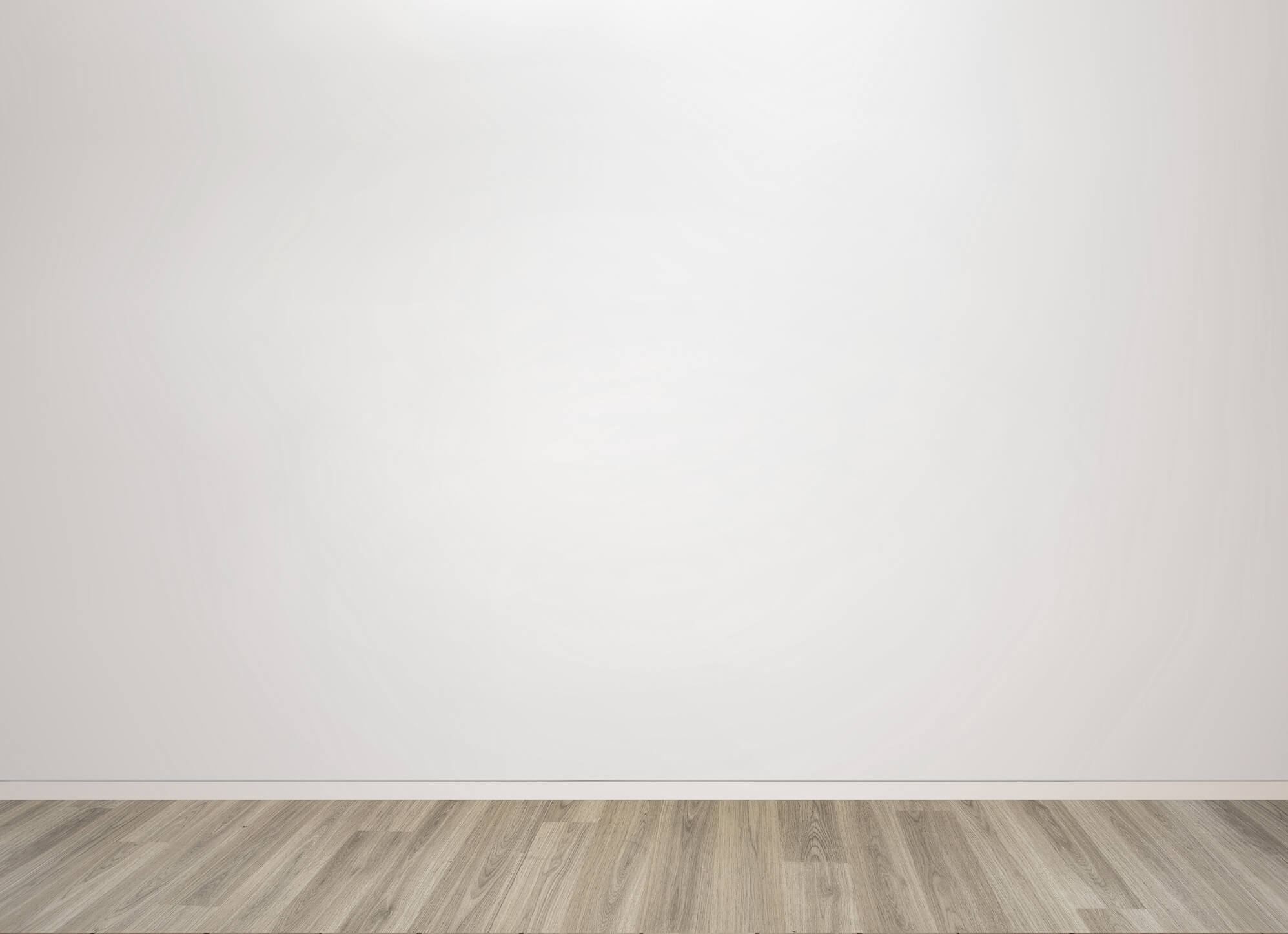
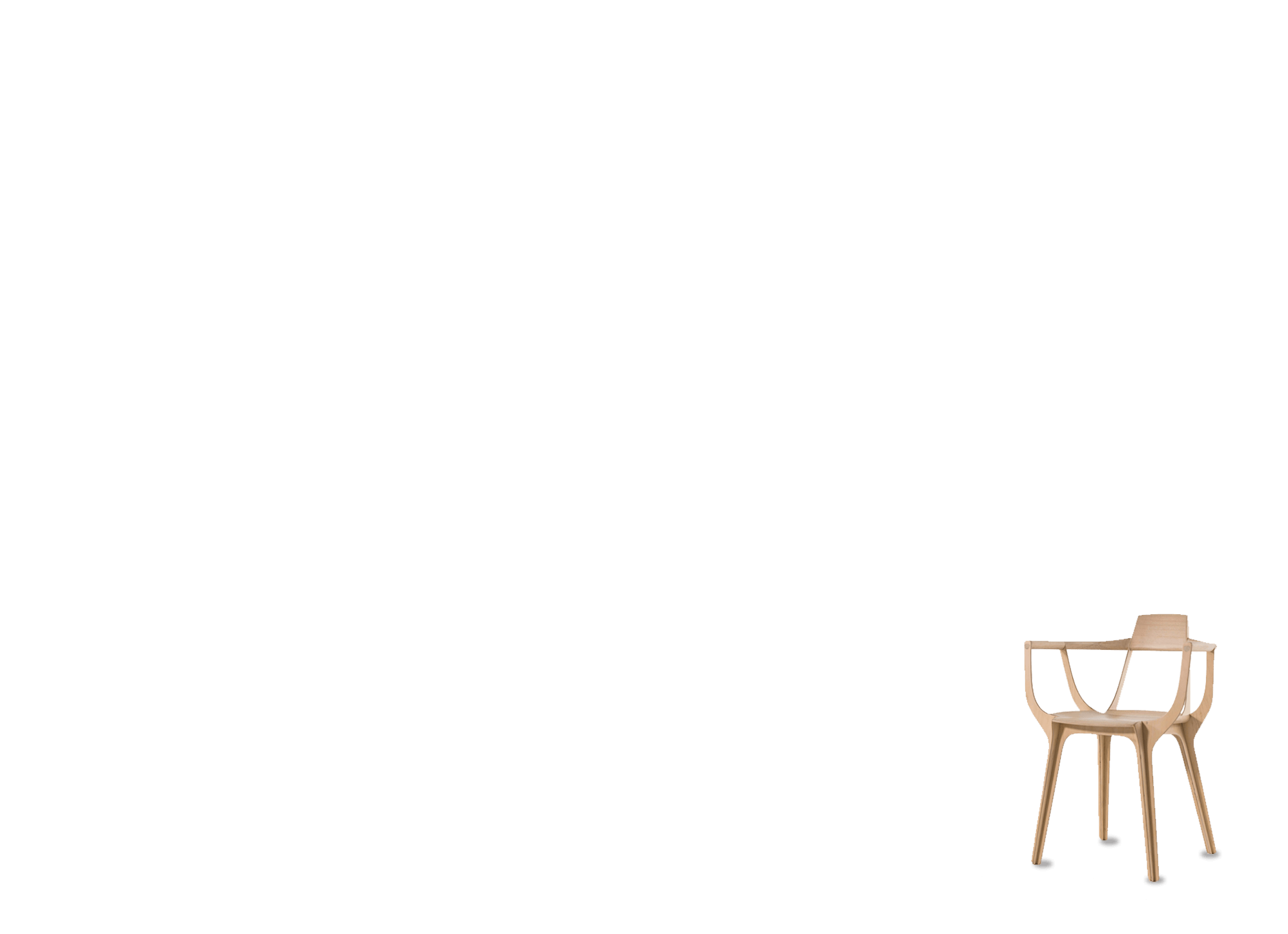
2.5 x 4m / 98.4 x 157 in
